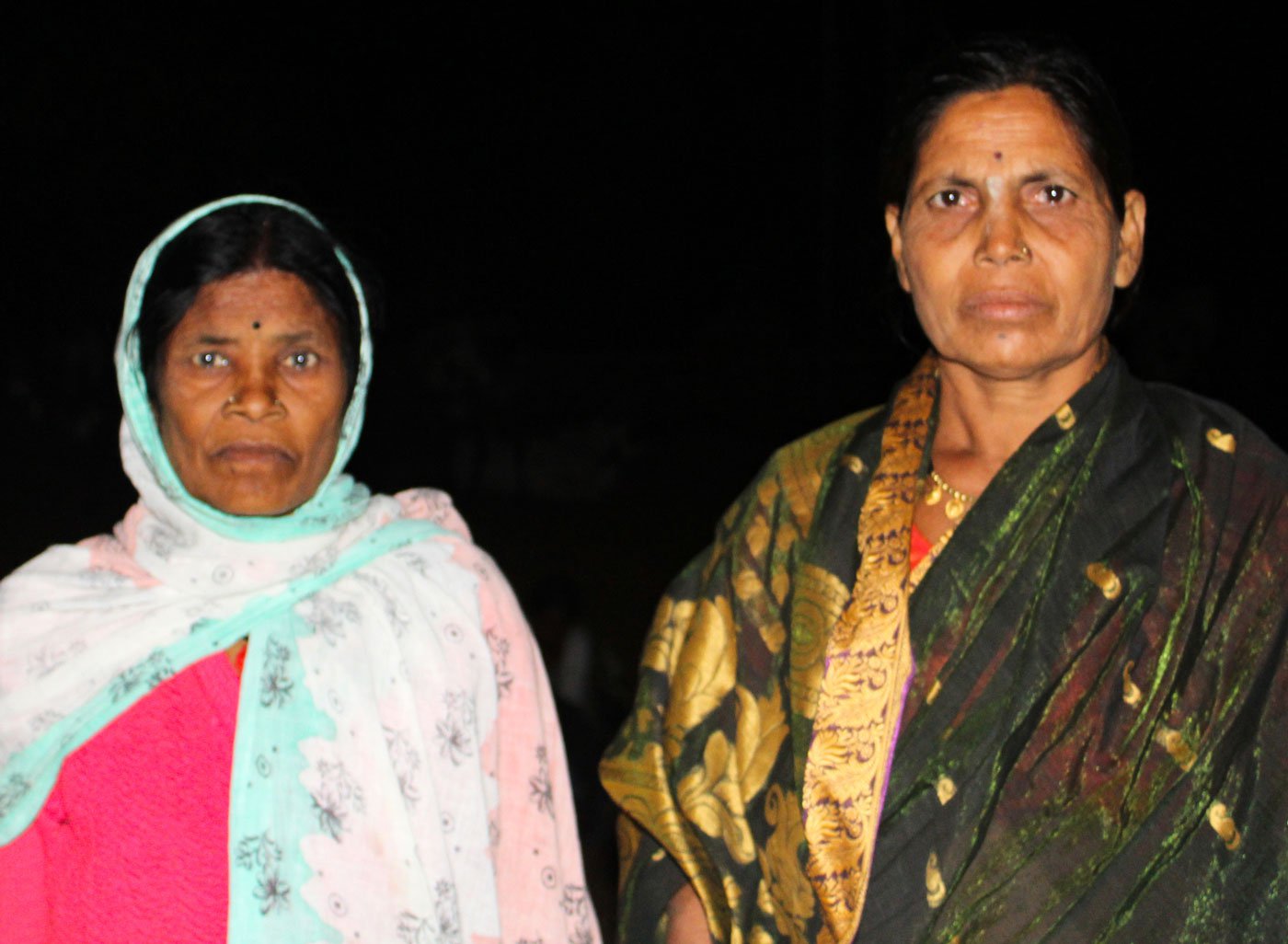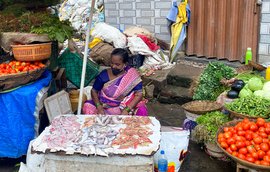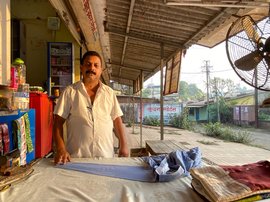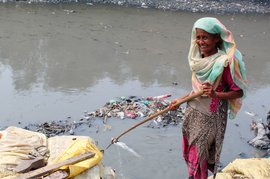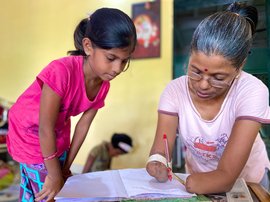“They entered our village in the middle of the night and destroyed our crops. Overnight, they took our land away from us and built sheds on it,” said Anusaya Kumare, 48, describing how, in February 2020, her family lost a large tract of their eight-acre farm in Sarkhani village of Nanded district in Maharashtra.
Anusaya, who belongs to the Gond Adivasi community, believes it was a few local non-Adivasi businessmen and traders who hired goons to steal her family’s land. “These people created false documents and sold our land to non-Adivasi people. The saat baara [7/12; record of land rights] is still in our names.” Her family cultivates cotton, Bengal gram, tur and wheat on the land.
“During Covid [lockdown], we survived on the crops we grew on whatever little land we had left. Last month [December 2020], they took away even that,” said Anusaya, who was not the only one in Sarkhani to lose land. In the village of 3,250 people (Census 2011), about 200 Adivasis out of about 900 have lost their lands. They have been sitting in protest outside the local gram panchayat office every day since the beginning of January.
“We have been protesting for a month at the
panchayat
office. Our legs hurt,” said Anusaya rubbing her feet with both hands. It was around 9 p.m. on January 23 and she had just finished a dinner of
bajra rotis
and garlic
chutney
. She and a few other women had spread out thick blankets inside the Ghantadevi temple in Igatpuri for the night.
The women were a part of the vehicular
jatha
(march) going to Mumbai from Nashik to protest against the three new farm laws. They were also going to highlight their many struggles.
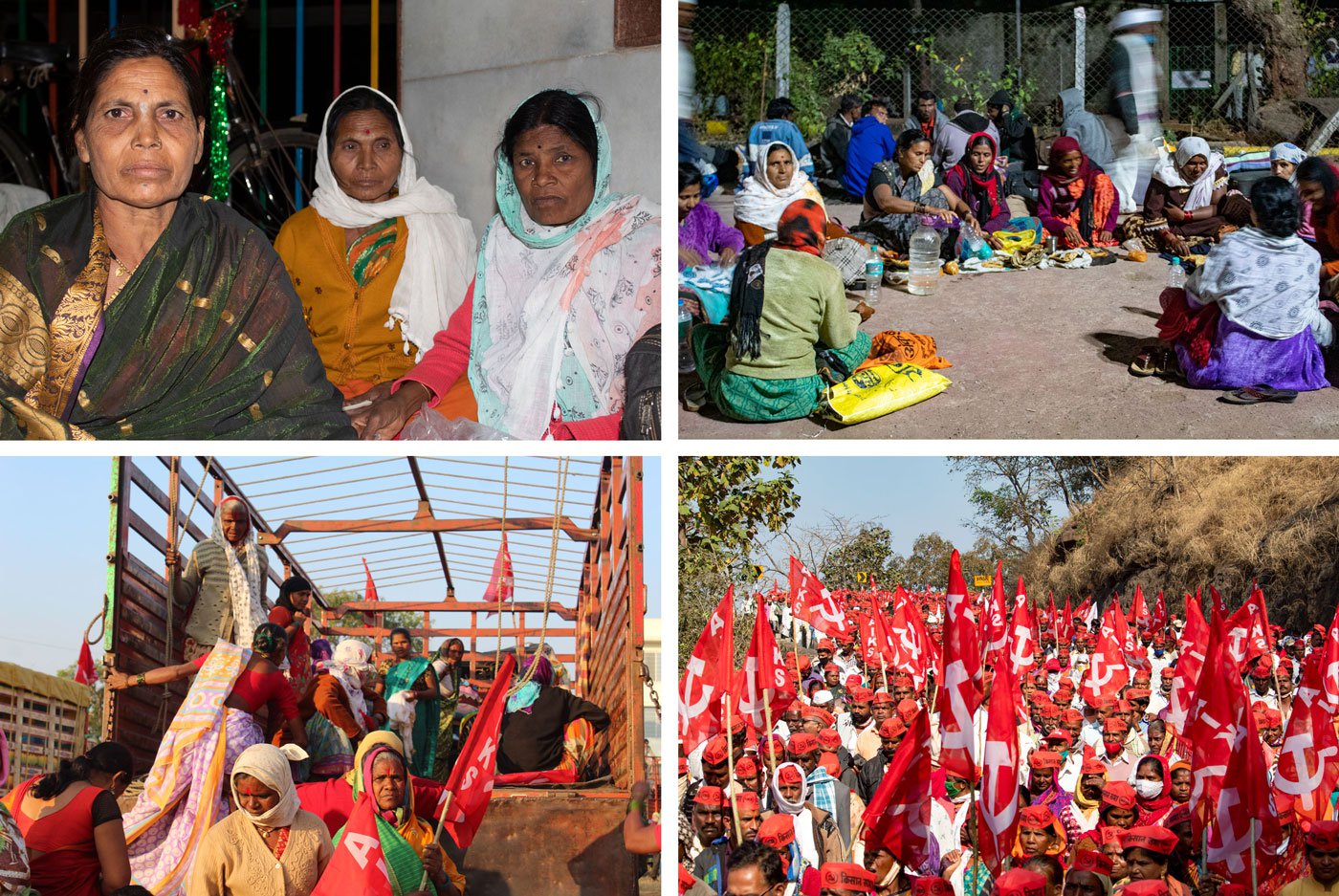
Top left: Anusaya Kumare (left) and Sarajabai Ade (right) from Sarkhani village in Nanded district. Top right: The jatha halted at Ghantadevi temple in Igatpuri for the night. Bottom: Thousands of farmers and farm workers travelled in tempos, jeeps and pick-up trucks from Nashik to Mumbai
On the afternoon of January 22, Anusaya and 49 other Adivasis had left their village in Kinwat taluka in jeeps and tempos. After an 18-hour journey across 540 kilometres, they reached Nashik city the next morning at 4.a.m. There they joined the thousands of farmers and farm workers who would leave on January 23 to go to Azad Maidan in south Mumbai, 180 kilometres away.
That night in the Ghantadevi temple, Sarajabai Ade from Sarkhani was also complaining of exhaustion. “My back and legs are paining. We have come on this
jatha
to tell the government about the protest going on back home. We have been fighting for our lands for a month. We are tired, but we will fight to our death for our land rights,” said 53-year-old Sarajabai, who belongs to the Kolam Adivasi community.
She and her family used to cultivate tur and vegetables on their three-acre land. “They destroyed our crops and put up sheds. Even though it is agricultural land they made up documents saying that it is non-agricultural,” she said.
The Adivasis of Sarkhani have all the legal documents to prove their land ownership, added Sarajabai. “It is legally our land. We have given a notice to the collector in Nanded and presented all the documents to the
tehsildar
in Kinwat. For 10 days, he [the collector] didn’t even come to understand the issues of the village. We waited for a month and then decided to protest.”
“Before we came on the
jatha
, we gave our
shapath patra
[affidavit] to the
gram sevak
, tehsildar and the collector,” said Anusaya. In the affidavit, the Adivasi farmers said that they were the rightful owners of their land, and submitted the land records as proof. “We have been sitting outside [the
panchayat
office] all day. We eat and sleep there and come home to bathe and take back some food. We want to ask, why, even after knowing the problems of Adivasis, do they still give our lands to non-Adivasi people,” she added.
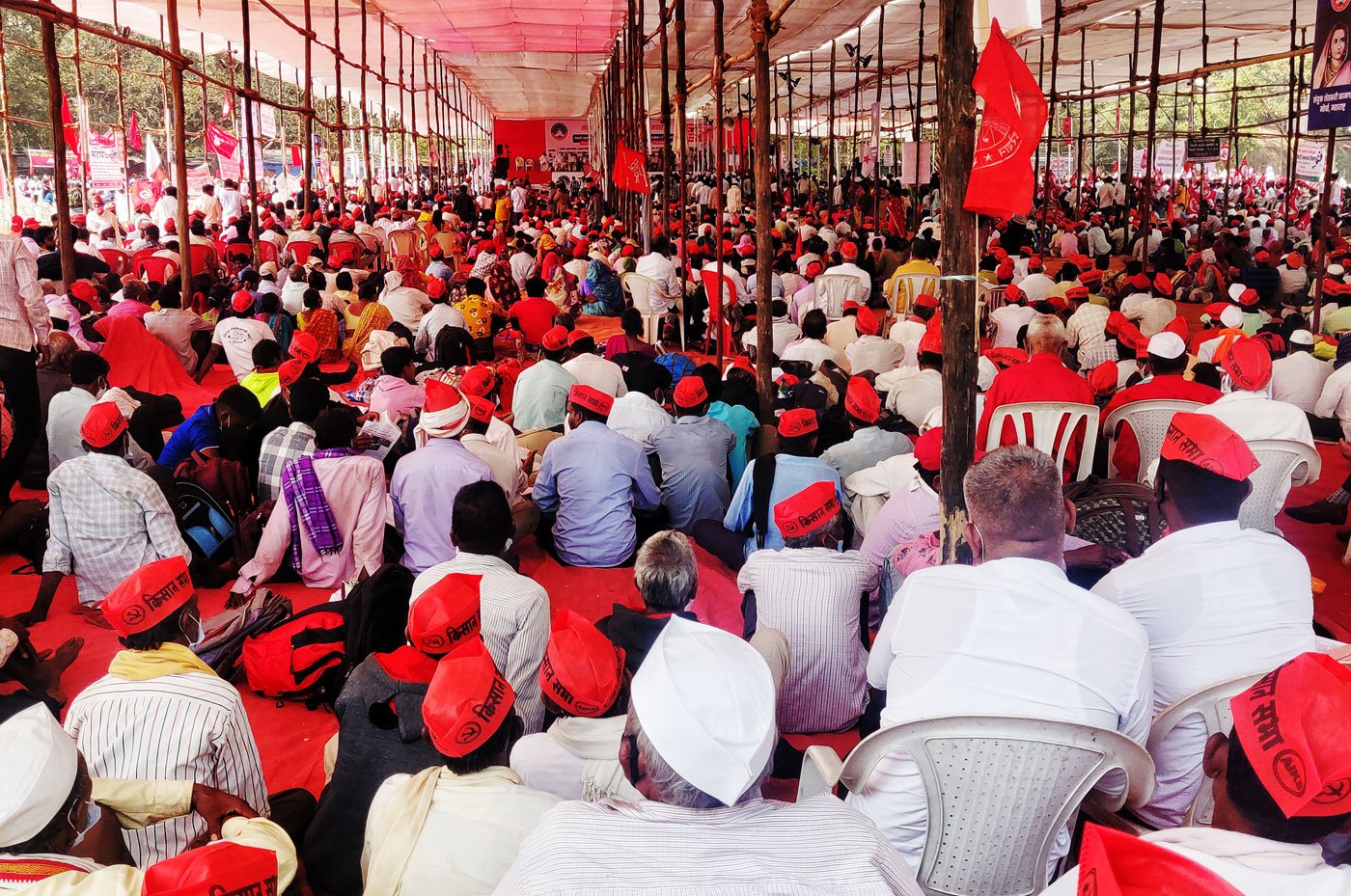
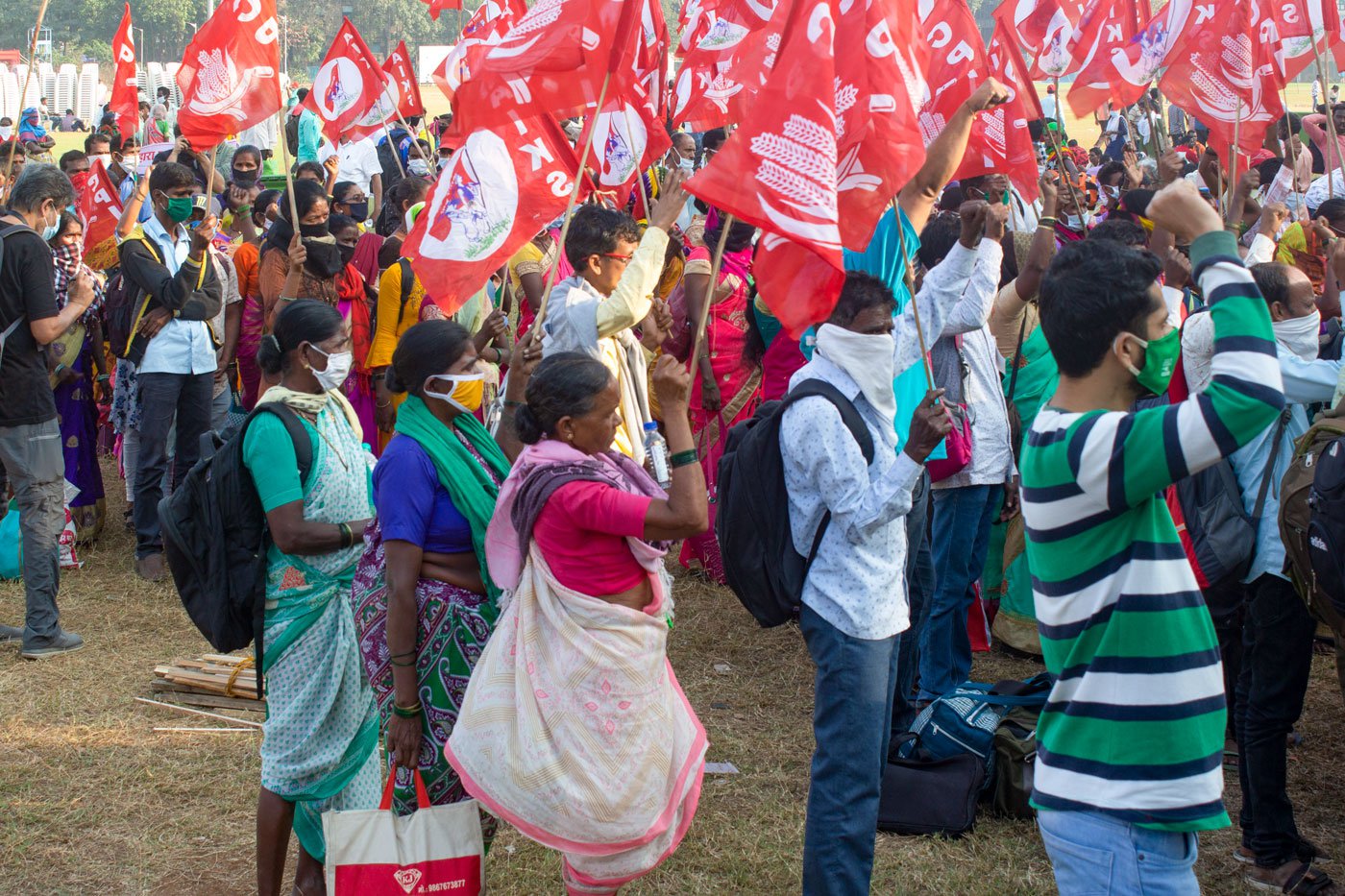
Farmers of Maharashtra sat in protest against the three new farm laws in Mumbai. The Adivasi farmers spoke up about their struggles at home
Upon reaching Azad Maidan on January 24, Anusuya and Sarajabai participated in the sit-in organised by the Samyukta Shetkari Kamgar Morcha on January 24-26 to protest against the new farm laws. Farmers from 21 districts of Maharashtra had come to Mumbai for the protest. They expressed their support for the farmers at Delhi’s borders who were taking out a tractor parade on January 26.
Since November 26, lakhs of farmers, mainly from Punjab and Haryana, have been at the gates of Delhi protesting against the three farm laws that the central government first issued as ordinances on June 5, 2020, then introduced as farm bills in Parliament on September 14 and hastened to become Acts by the 20th of that month.
The laws are The Farmers’ Produce Trade and Commerce (Promotion and Facilitation) Act, 2020 ; The Farmers (Empowerment and Protection) Agreement on Price Assurance and Farm Services Act, 2020 ; and The Essential Commodities (Amendment) Act, 2020 .
The farmers see the laws as devastating to their livelihoods because they will expand the space for large corporates to have even greater power over farmers and farming. The laws also undermine the main forms of support to the cultivator, including the minimum support price (MSP), the agricultural produce marketing committees (APMC), state procurement and more. They have also been criticised as affecting every Indian as they disable the right to legal recourse of all citizens, undermining Article 32 of the Indian Constitution.
While Sarkhani’s Adivasi farmers were representing their struggles in Mumbai, about 150 had stayed back to continue their day-and-night protest outside the
panchayat
office. “We are in Mumbai to make the voices of Adivasis heard,” said Anusaya. “And we will continue to protest until we get justice.”
